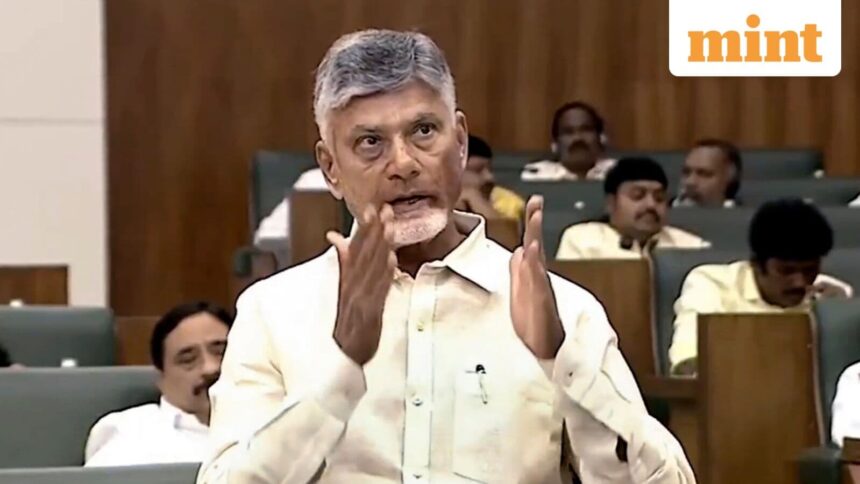Several years prior to Congress leader Rahul Gandhi’s allegations of collusion between the Election Commission of India (ECI) and the ruling Bharatiya Janata Party (BJP) in ‘stealing’ votes, Andhra Pradesh Chief Minister Chandrababu Naidu made similar accusations in his state. Naidu, leader of the Telugu Desam Party (TDP), is currently an ally of the BJP in the National Democratic Alliance (NDA).
In March 2019, Naidu, then Chief Minister, alleged that the names of approximately eight lakh TDP voters were removed from the electoral rolls. At that time, Naidu’s TDP was in power, and the party was engaged in intense contention with the opposition YSR Congress over the matter. Naidu claimed, “Eight lakh TDP votes have been removed. They used Form-7 for the purpose. Looks like they may even remove my vote tomorrow,” in a post on X (formerly Twitter).
According to procedural norms, names can only be deleted from the electoral rolls through Form 7 applications, which require scrutiny and verification by Booth Level Officers, followed by a final order from the Electoral Registration Officer (ERO). Both voters and applicants have the right to be heard before any deletions are approved.
The State Chief Electoral Officer, Gopala Krishna Dwivedi, responded to Naidu’s claims by stating that the ECI allowed the deletion of only 40,000 voters across 74 assembly constituencies, with only 10,000 actually removed thus far.
Following Naidu’s allegations, assembly elections were held in Andhra Pradesh, where the YSR Congress Party (YSRCP) achieved a significant victory, winning 151 out of 175 seats, while Naidu’s TDP garnered only 23 seats.
Recently, the TDP, the BJP’s second-largest ally in the NDA, expressed concerns over the Special Intensive Revision (SIR) exercise conducted in Bihar. The party sought clarity from the ECI regarding the scope of the SIR, which may be replicated nationwide, emphasizing that such an exercise should not occur within six months of any major election and should be clearly defined as unrelated to citizenship verification.
Most opposition parties have voiced objections to the ECI’s SIR, with some pursuing legal recourse. In a letter to Chief Election Commissioner Gyanesh Kumar on July 15, TDP parliamentary party leader Lavu Sri Krishna Devarayalu, along with five colleagues, requested that the scope of the SIR be clearly limited to electoral roll correction and inclusion.
Even while in opposition, Naidu highlighted issues with the voters’ list in December 2023, accusing the YSRCP-led state government of irregularities and failure to follow the correct enrollment procedures. Notably, in 2004, while serving as Chief Minister, Naidu had similarly criticized the Election Commission for alleged deletions of eligible voters’ names, claiming that the commission was more responsive to unfounded complaints from opposition parties regarding electoral roll irregularities.
In the lead-up to the Andhra Pradesh assembly elections last year, Naidu allied again with the BJP-led NDA. The alliance won decisively, securing 164 of 175 seats, with Naidu’s party claiming victory in 135 out of 144 contested seats. The YSR Congress Party, in stark contrast, won only 11 seats.
On September 18, Rahul Gandhi cited alleged attempts to delete votes in Karnataka’s Aland constituency leading up to the 2023 assembly elections. He also brought attention to claims involving Maharashtra’s Rajura constituency, where he alleged that voters were fraudulently added using automated software. Gandhi accused Chief Election Commissioner Gyanesh Kumar of protecting those undermining Indian democracy by withholding technical details related to the deletion of voters’ names in Karnataka.
In response, the ECI issued a five-point rebuttal denying Gandhi’s allegations, stating that no votes can be deleted online, indicating that applications must undergo scrutiny. However, the commission acknowledged “unsuccessful attempts made for deletion of electors in Aland Assembly Constituency” in 2023, confirming that an FIR was filed to investigate the matter.










